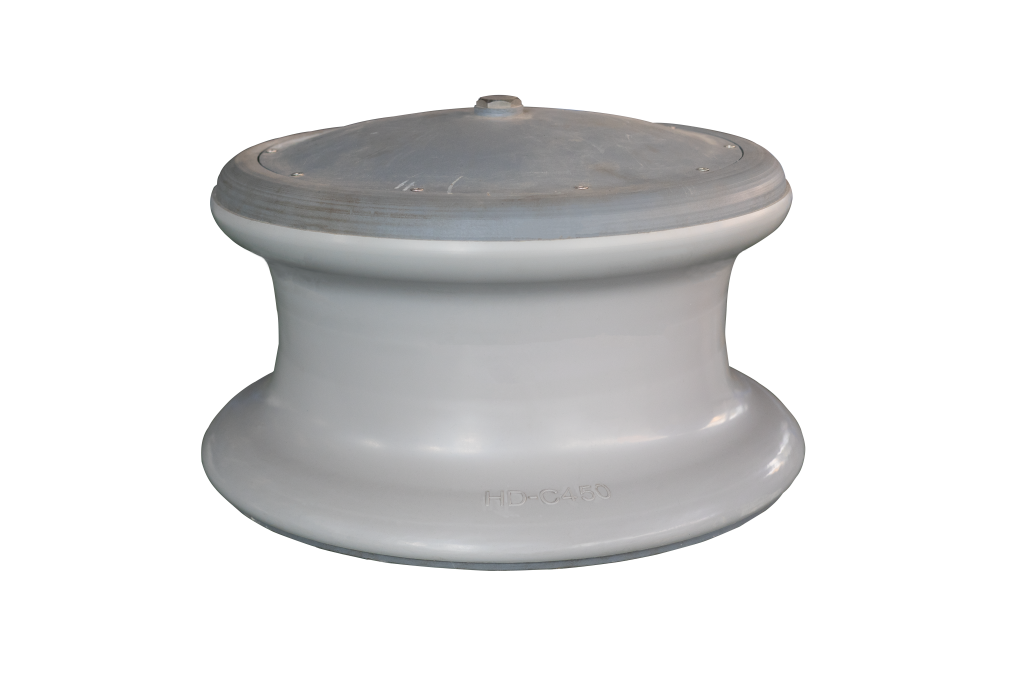SOARLON Polymer Roller Protective Sleeve
The polymer roller protective sleeve for ships, due to the particularity of its materials and design, is widely applied in fields such as ships, port loading and unloading, and marine engineering, and it has the following remarkable advantages:
I. Main Advantages
1. Strong Corrosion Resistance
– Environmental Adaptability: Polymer materials (such as polyurethane, nylon, ultra-high molecular weight polyethylene, etc.) have excellent corrosion resistance against seawater, salt spray, oil stains, chemicals, etc., preventing the performance degradation of metal rollers caused by rust.
– Extended Service Life: Compared with traditional metal protective sleeves, it can significantly reduce the losses caused by corrosion and lower the replacement frequency.
2. Excellent Wear Resistance
– Abrasion Resistance: The polymer material has a high surface hardness and self-lubricating properties. It can withstand heavy-duty rolling and frequent friction (such as the dragging of mooring ropes and steel cables), reducing surface wear and extending the service life of the rollers and supporting equipment.
– Reduced Maintenance: There is no need for frequent lubrication or repair, reducing the operation cost.
3. Shock Absorption and Noise Reduction
– Buffer and Energy Absorption: The polymer material has a moderate elastic modulus, which can effectively absorb impact loads and reduce structural damage caused by vibration or collision during the operation of the equipment.
– Noise Reduction Effect: Compared with metal rollers, it produces less noise during operation, improving the working environment.
4. Lightweight Design
– Reducing the Load: The density of the polymer material is much lower than that of metal. The overall weight of the protective sleeve is light, reducing the additional load on ships or lifting equipment, which is beneficial for energy conservation and operational flexibility.
– Easy Installation: The lightweight feature simplifies the installation and replacement processes, saving labor costs.
5. Anti-slip and Stability
– Controllable Friction Coefficient: The surface of the material can achieve an anti-slip effect through modification design, preventing mooring ropes and goods from slipping on the rollers and enhancing the safety of the operation.
– Deformation Resistance: The polymer material can still maintain a stable shape in high and low temperature environments, avoiding the jamming problem caused by thermal expansion and contraction.
6. High Economy
– Low Comprehensive Cost: Although the initial cost may be slightly higher than that of metal, its long service life and maintenance-free characteristics can greatly reduce the life cycle cost.
– Wide Compatibility: It can be adapted to rollers of various specifications, reducing the cost of equipment renovation.
7. Environmental Protection and Safety
– Pollution-free: The material is non-toxic and leaves no rust residue, avoiding pollution to the marine environment.
– Insulation: Some polymer materials have insulating properties, reducing potential safety hazards during the operation of electrical equipment.
II. Typical Application Scenarios
– Mooring rollers and guiding rollers of ships
– The pulley blocks of port cranes and gantry cranes
– The dragging system of heavy-duty equipment on offshore platforms
In conclusion, by combining materials science with engineering design, the polymer roller protective sleeve has addressed the shortcomings of traditional metal components in marine environments. It takes into account durability, economy, and safety, making it an ideal choice for modern ship and marine engineering equipment.

